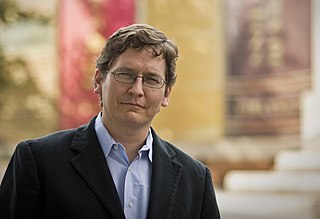A Quote by Daniel Kleppner
Big machines are the awe-inspiring cathedrals of the 20th century.
Quote Topics
Related Quotes
At the time Gothic cathedrals were designed, most people lived in dark huts, so just walking into a space vastly larger than what they were habituated to, lit by stained glass windows, was literally awe-inspiring. Today, we're not as impressed by big buildings, so we have to go to very large mountains to experience that 'diminutive effect.'
D-Day represents the greatest achievement of the american people and system in the 20th century. It was the pivot point of the 20th century. It was the day on which the decision was made as to who was going to rule in this world in the second half of the 20th century. Is it going to be Nazism, is it going to be communism, or are the democracies going to prevail?
The different American experience of the 20th Century is crucial because the lesson of the century for Europe, which essentially is that the human condition is tragic, led it to have a build a welfare system and a set of laws and social arrangements that are more prophylactic than idealistic. It's not about building perfect futures; it's about preventing terrible pasts. I think that is something that Europeans in the second half of the 20th century knew in their bones and Americans never did, and it's one of the big differences between the two Western cultures.
I was really interested in 20th century communalism and alternative communities, the boom of communes in the 60s and 70s. That led me back to the 19th century. I was shocked to find what I would describe as far more utopian ideas in the 19th century than in the 20th century. Not only were the ideas so extreme, but surprising people were adopting them.



































